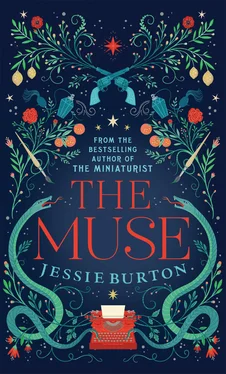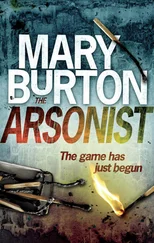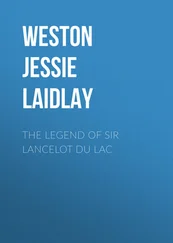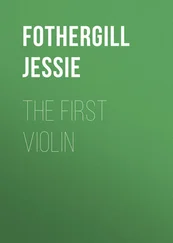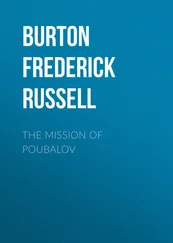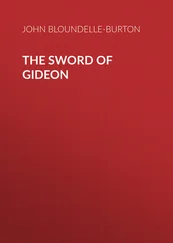‘ People of Seville! ’ the general bawled on. ‘ The die is cast and decided in our favour, and it is useless for the rabble to resist and produce that racket of shouts and gunshots you hear everywhere. Troops of Legionnaires and Moroccans are now en route to Seville, and as soon as they arrive, those troublemakers will be hunted down like vermin. Long live Spain! ’
‘Isaac,’ Olive said, her voice rising in panic. ‘They’ve got troops. Weapons. Trained soldiers. What would men like that do to you?’
They could hear the sound of Harold’s motor, fast and loud, crashing up the hill. The car door slammed. ‘Are you there, are you there? Have you heard?’ he shouted through the hallway.
Teresa veered away from the desk, stumbling along the unlit corridor, bashing into the walls as she fought her way through the kitchen and onto the veranda, as far away as possible from everybody else. She ran down into the darkness of the orchard and felt the bile come, her body retching the words she could not find to spell out the terror inside — that this was it, the wave was here, the land ripped, her brother taken, and Olive — Olive would leave. She kept shaking her head, willing herself to get a grip, that she’d got this far — but in her heart she could hear the soldiers. Stomping jackboots along dark routes, thump thump thump , butt of a gun, split head; no place to hide.
‘Tere? Tere!’ It was Olive, calling for her. ‘Tere, don’t be scared. Where are you?’
But this was how she would end, Teresa knew. Here, on her knees, in the dark, in the company of those Spanish wolves.
When the telephone rang in the hallway two days after I was locked out of Quick’s house, I ran downstairs, still in my dressing gown, to pick it up. When I heard the person on the line say, ‘Wha’ happen now, Delly?’ I was so glad, I nearly cried. It wasn’t Quick I wanted, nor Lawrie. Her voice was permission to live.
‘Cynth!’
‘You still alive, girl?’
‘Just about.’
‘Ah — Ah free today. You want to meet up?’
It had been just over two months. I saw her before she saw me. Cynthia was immaculate as ever, leaning on one of the lions in Trafalgar Square, wearing a thick sheepskin coat which I’d never seen before, and a new pair of denim flared trousers. She looked. . cool. She’d let her hair out of its French plait, and it was cut in a new shape; the beginning of a rounded Afro. I felt frumpy in comparison, in my thick tights and sensible heels, my woollen scarf and hat clamped round my ears like something out of a Blyton book. But still. A cold November morning in London; you do not mess.
My heart surged at how wonderful Cynth was. The realization of how far I’d travelled alone swamped me, as I saw her face, my friend, my oldest friend. Cynth caught my eye as I moved towards her, her arms wide open like a flightless bird trying to flap her wings.
‘Ah real sorry, Cynth,’ I said. ‘Sorry. Ah was stupid, I was mess up—’
‘Hey, Delly,’ she said. ‘Ah marry and lef you. Ah sorry too. What I was thinking?’ But there was a twinkle in her eye. ‘Ah miss you real bad, girl.’
‘Me too. Me too. Me too.’
Her face broke open in a smile, and we turned shy. My emotion left me embarrassed — how I, a grown woman, could be so childish, so effervescent. My heart thumped in my ribs to be near her; I was giddy with her, my giddiness exacerbated by the fact she seemed to feel the same. We walked down under Admiralty Arch and into St James’s Park, finding a bench to sit. ‘Sherbets,’ Cynth said, opening her handbag, proffering me a paper sack of sweets. ‘You too thin, Delly. What goin’ on?’
‘Ah pining for you,’ I said, mocking myself, trying to show I still had grit. When she laughed aloud, the sound almost hurt. How good it always was to make her laugh.
‘Nah, come now,’ she said.
So I told Cynth everything — about meeting Lawrie after the wedding, and our dates after that — the mother he lost and the painting she left — and how Quick’s attraction to the artwork seemed mingled with repulsion. I told her how the name ‘Isaac Robles’ came up, Edmund Reede convinced that this was a long-lost artwork by a forgotten genius, and how Quick was more doubtful about this, until her declaration last night that actually, the painting was nothing to do with Isaac Robles at all.
Cynth was much more interested in Lawrie, how it was going, and was it serious — but I tried to keep the focus on the conundrum of Quick, rather than of my own heart. ‘The worse of it, Cynth,’ I said, ‘is that she dyin’.’
‘Dyin’?’
‘Cancer. She tell me is in a late stage. They didn’t catch it early. Pancreatic.’
‘Poor woman,’ said Cynth. ‘She sound scared about it, invitin’ you round. Why she worrying about paintings when she goin’ to dead?’
‘That is what bothering me. Because listen to this; she running out of time on something, I sure of it.’
‘What you sayin’?’
‘Reede find out that the person who first sell Lawrie’s painting in 1936 is an art dealer called Harold Schloss,’ I said. ‘The thing is, I find a letter in Quick’s house addressed to Olive Schloss, inviting her to study at the Slade School of Art.’
‘Delly, were you snoopin’ round a dyin’ woman house?’
I tutted. ‘No! It there in her telephone book she tell me to fetch. But listen — Quick also have telegram address to Harold Schloss, date of July of 1936.’
‘What, just lyin’ there in her telephone book, thirty year later?’
‘I know. I know. But — is like Quick want me to find it. Is like she lef’ it out, because she dyin’ and don’t want the truth to die with her.’
‘Delly. .’
‘Quick too interested in where Lawrie get the painting from. And then she tell me last night is not Isaac Robles who paint it. Olive Schloss is key to this, Ah sure.’
‘But who is this Olive Schloss?’
I exhaled, and my breath made condensation in the air. ‘That is the question, Cynthia. That is it . Clearly a body who could paint, otherwise they wouldn’t have been offered the Slade. Someone probably relate to Harold Schloss.’
‘His wife?’
‘Maybe. But if you going to art school, you usually younger, a student.’
‘His daughter, then?’
‘That’s what I think. Olive Schloss was Harold Schloss’s daughter. And at the Skelton, it have an old photograph of a man and woman standing by Lawrie’s painting. On the back someone write “ O and I .” That stands for Olive and Isaac. Quick say that Isaac Robles didn’t paint the pictures. Then who did it, and how she know? I don’t think Quick is who she say she is.’
‘Delly. .’
‘It always bother me, how she never have any painting on her wall. Why’s that? And the thing is, Quick went funny when I ask her about Olive Schloss. She shut the door on me, lock me out. Is like she want me to know, to get closer to the truth of it, and at the same time — she cyan bear it.’
Cynthia appeared to be thinking, staring at the ducks gliding across the pond before us. Beyond the trees, the spindly brown turrets of Westminster poked up into the air. ‘I always thought Marjorie Quick was a funny name,’ she said.
We sat in silence for a moment. I loved my friend for believing, for not saying I was mad, for accompanying me as I moved to and fro over my narrative. It gave me permission to entertain seriously the possibility that Quick might once have gone by another name, lived another life, a life she was desperately trying to remember — and to tell me — before it was too late. I couldn’t imagine the pain of seeing someone else take credit for your work, whilst you languished unnoticed, uncelebrated, knowing death was so near.
Читать дальше
